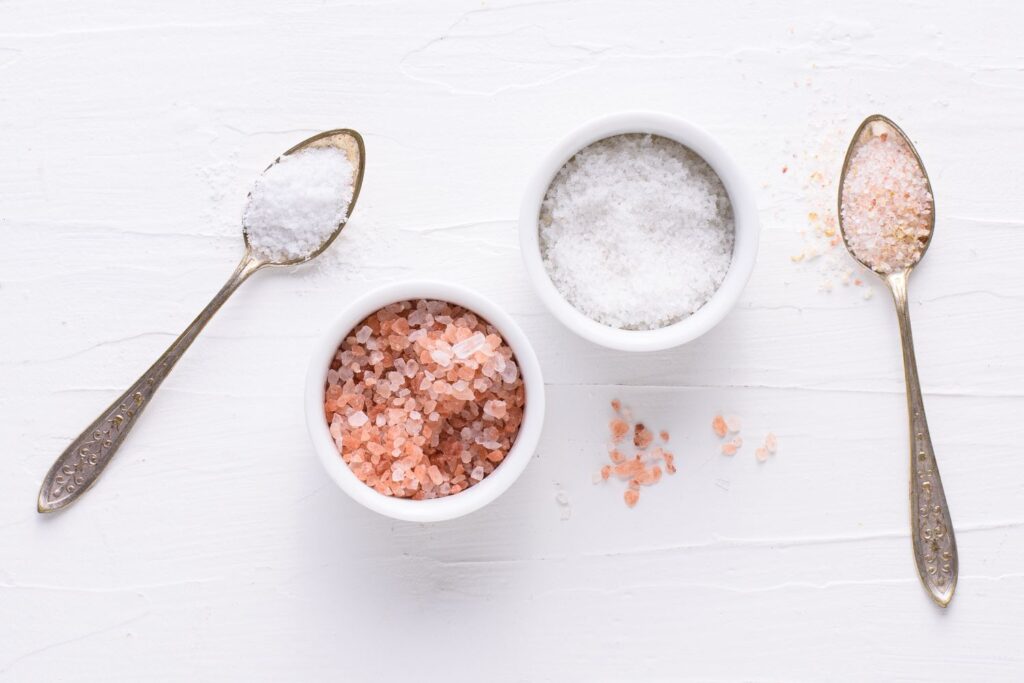Salt is one of the most essential and universal ingredients in the culinary world. Yet, not all salts are created equal. There are different types of salts and now a days the debate between natural sea salt and table salt has gained friction among chefs, health enthusiasts, and home cooks alike. So here in this blog, we are going to highlight those things that sets them apart, and why does quality matter? Does it even matter or not? By not wasting further time, let’s just dive into the details.
The Basics: What Are They?
Table Salt is a highly refined product, usually mined from underground salt deposits. Basically, it undergoes a rigorous processing method that removes most natural minerals and pure sodium chloride is left behind. Moreover, additives like anti-caking agents and iodine are often included to enhance shelf life and provide additional nutrients.
Natural Sea Salt, on the other hand, is harvested through the evaporation of seawater. It is minimally processed, and considered more natural. It retains trace minerals like magnesium, calcium, and potassium. These minerals not only contribute to its distinctive flavour but also offer health benefits.
Differences in Processing
Table Salt:
- Heavily refined and bleached.
- Stripped of all natural minerals.
- Often contains additives, including anti-caking agents and iodine.
Sea Salt:
- Naturally harvested through evaporation.
- Retains its original mineral content.
- Free from chemical additives, offering a more natural product.
Taste and Texture
One of the most noticeable differences between these salts is their taste and texture. Lets see what exactly the difference between these two salts in terms of their taste and texture.
Table Salt: Actually, table salt is uniform in texture and has a sharper, one-dimensional saltiness. It dissolves quickly and that is why it is more suitable for baking and precision cooking where consistency is key.
Sea Salt: Sea salt on the other hand is soarer and varies in texture depending on the type. The beneficial minerals are present that gives it a complex, nuanced flavour that enhances dishes in ways table salt cannot. Flaky sea salts, like fleur de sel or salt pyramids, add a delightful crunch and visual appeal as finishing salts.

Health Implications
The choice of salt can have an impact on our health as well, though moderation is key with any type of salt.
Table Salt: While iodized table salt can help prevent iodine deficiency, but still its lack of natural minerals and potential chemical additives make it less appealing for those seeking a clean, natural diet.
Sea Salt: Thanks to its minimal processing, sea salt retains trace minerals that contribute to overall well-being. These minerals can support electrolyte balance, bone health, and muscle function. However, it’s important to note that sea salt generally contains less iodine, so supplementation may be necessary in iodine-deficient regions.
Environmental and Ethical Considerations
Choosing sea salt over table salt can also have environmental and ethical benefits. Sustainable harvesting methods are used to preserve sea salt while mining of table salt can be more resource-intensive and environmentally damaging.
Why Quality Matters?
The quality of salt impacts not only the flavour of your dishes but also your health and the environment. Here’s why opting for natural sea salt is worth considering:
- Enhanced Flavour: The subtle complexity of sea salt elevates the taste of food without overwhelming it.
- Nutritional Benefits: Trace minerals in sea salt provide additional health benefits.
- Cleaner Product: Free from artificial additives and chemicals.
- Sustainable Practices: Many sea salt producers prioritise eco-friendly and ethical harvesting methods.
How to Use Natural Sea Salt & Table Salt ?
We have eased your decision in choosing which one to use in which condition
- Table Salt: Table salt is best for baking and recipes where you have to consider precise measurements and consistency.
- Sea Salt: Sea salt is Ideal as a finishing salt as it highlights the natural flavors of fresh ingredients. It is also best to add texture to dishes like salads, roasted vegetables, and grilled meats.
Conclusion
While both table salt and natural sea salt have their uses, the latter offers a more wholesome, flavourful, and environmentally conscious choice. There is a reason why sea salt is more preferable than table salt. By investing in high-quality sea salt, you not only elevate your cooking but also helping your body enjoy the added nutritional benefits of nature’s minerals. Although the decision is yours, but next time you reach for salt, consider the difference quality makes.
